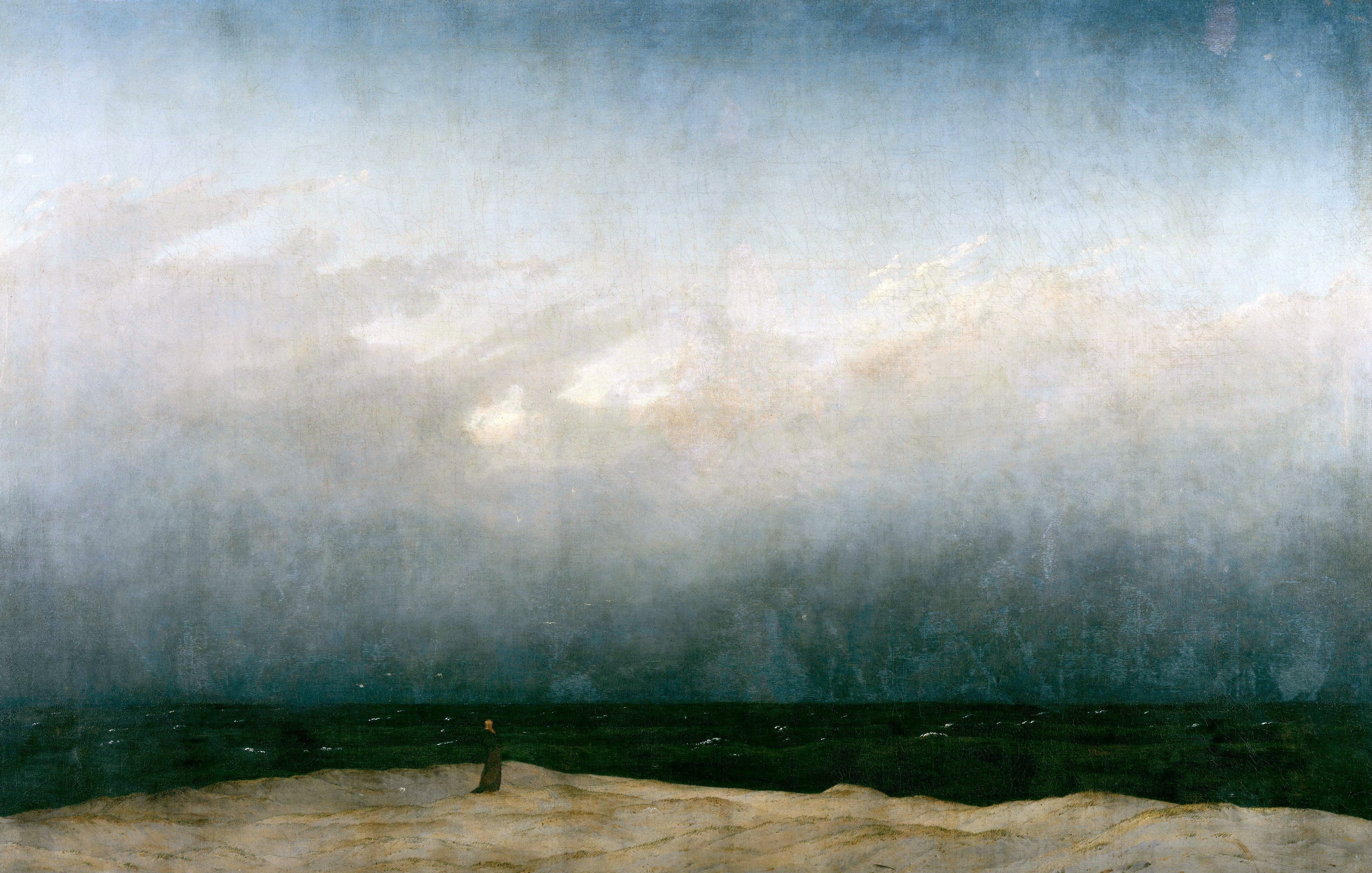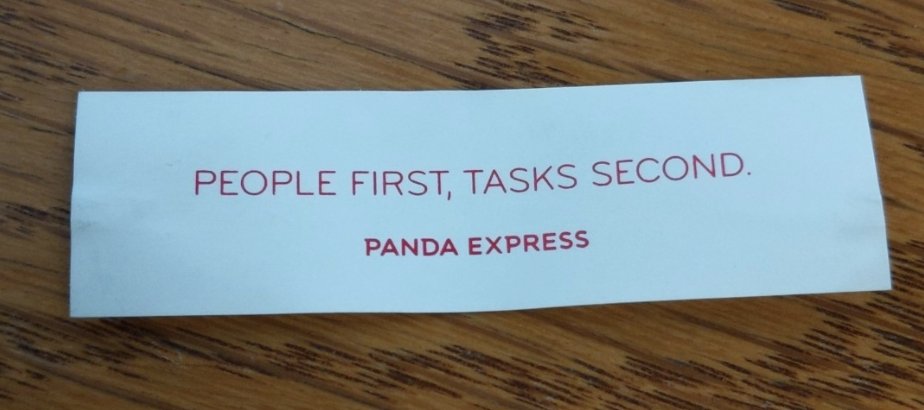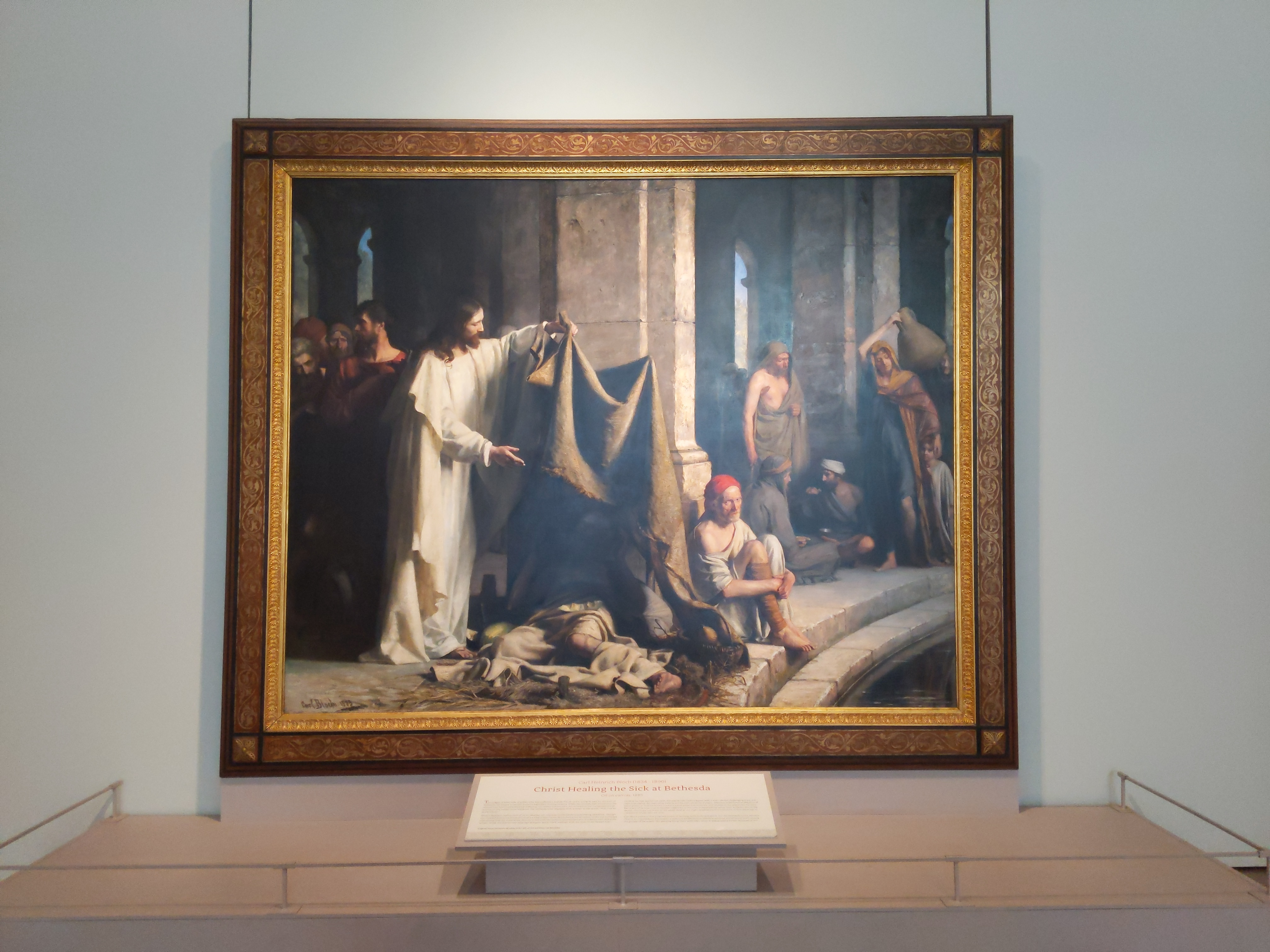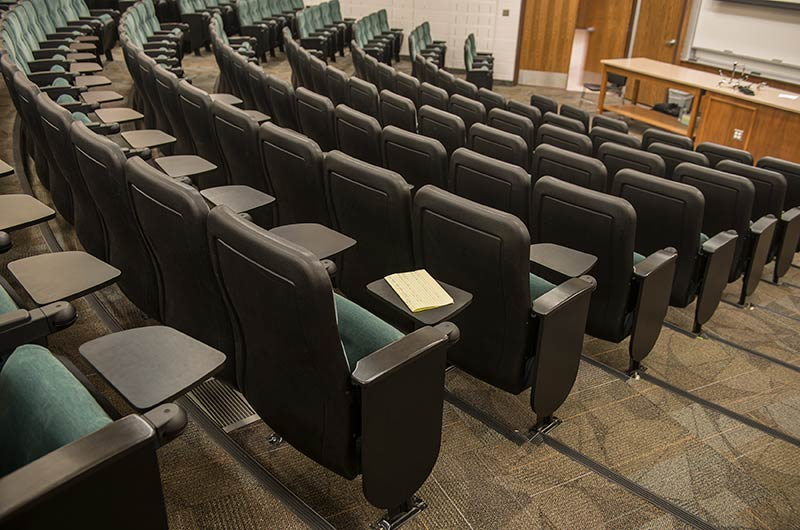A Farewell Address

Kyle Gill, Software Engineer, Particl

I’ve been attending BYU since Fall of 2013, and I’ve learned a thing or two along the way. As I approached graduation, I often found myself reflecting on the things I learned during those 7 years. It led me back to my journals, where I’ve been recording notes that professors, friends, and God have taught me. This is a collection of the most precious and important lessons I’ve learned.
George Washington penned a farewell address to the United States to issue departing advice and warn the people to stay true to the values and freedoms they treasured. I’m addressing this letter not to my “friends and fellow-citizens”, but to myself, with lessons I’ve learned that help me stay true to who I am as I graduate from a place I’ve grown fond of.
It’s evident by the list of lessons learned that the most valuable ones to me have been more spiritual than secular. Though I have dedicated a lot of time to learning and leveling up in academics and my career, it hasn’t elevated me to be better quite like other factors have. Sure I value many of those technical skills and “book smarts”, but they are ephemeral and pass away. Some lessons are different though, they persist. What follows are those lessons:
Lessons learned on a mission
While serving as a missionary, I was trying to find the energy for what was long and really hard work. Missionaries for the Church of Jesus Christ of Latter-day Saints work all hours of the day 7 days a week, taking a break (usually) on Mondays in order to perform chores like laundry and cleaning, as well as writing their families. They do so somewhere around the world, to teach the same values they have come to learn and treasure to others that are interested in learning. They teach the Gospel of Jesus Christ and about the Book of Mormon (which testifies of Jesus Christ).

I reckon I shook enough hands as a missionary that if I ever carried COVID-19, we're all toast.
“Get started and motivation will follow”
March, 2014
2 months into my service as a missionary in Spain I felt a little deflated. You’re frequently heckled and ignored (at no fault of those doing the heckling or ignoring, because let’s face it, missionaries can be a little annoying), but you really intend to do good. From the daily rigor of learning spanish, teaching new people in parks, streets, metros, leading free english classes, caring for sick and elderly neighbors, there were days where I was just plain exhausted to keep going.
One morning I opened up a book on adjusting to life as a missionary and saw the phrase “get started and motivation will follow”. It was under a section about finding the motivation to stay physically fit, but the lesson dug in deep. From then on I would tell myself to “get started and motivation will follow” almost every day, and it stuck with me. When I find myself in need of a second wind I remember that if I get started, I’ll eventually feel the drive to keep forging ahead, and it always seems to.
“Is any thing too hard for the Lord?”
July, 2015
I internalized an important principle from a story in the scriptures that my mission president quoted often in Genesis 18:14. Against all odds, Abraham and Sarah have a child in their old age after the Lord asks them: “Is any thing too hard for the Lord?“.
Asking that question to myself has been a good practice for me when I doubt that things will work out. Although things seem and often are plain hard, is anything too hard for the Lord?
“Ponder anew, what the Almighty can do”
October 3, 2015
The line “ponder anew, what the Almighty can do” comes from a German hymn. I had heard the song sung many times, but never felt the words of the 3rd verse sink into my heart until I sang them with the choir and congregation in the October 2015 General Conference. For whatever reason, the conductor was in no hurry to get through the song and every phrase felt intentional. When I sang that line I reflected in a moment on all the ways my life could have been different were it not for a belief in “the Almighty”. Religion has kept me from feeling confused and isolated, and led me to feel fulfilled and uplifted, no matter the circumstances of my life.
The invitation to “ponder anew” isn’t a guarantee of deliverance from hardship, but it does implicitly suggest some level of that. Knowing and reminding myself that God is capable has helped me face more difficult circumstances when I feel incapable myself.
“The world is our campus”
December 9, 2015
I finished my missionary service and flew home from Spain just under 2 full years of being there on December 9th, 2015. It was that day where I realized the brilliance of something I’d seen almost every day as a freshman in 2013.

Many BYU students serve missions and learn foreign languages, making campus the only place with more bilinguals than Duolingo's annual DUOCON conference [citation needed].
BYU had a sort of mantra on a sign welcoming people to campus that reads “The world is our campus”. It felt very real when I finally realized I was leaving my new home in Spain. I had been there long enough and assimilated so much that I wasn’t sure I’d feel at place back home (spoiler: I did). The things I’d started learning as a freshman were things I was applying in my corner of “campus” in Barcelona, Spain. As I graduate, I hope to treasure the idea that everyone around the world is a child of God worthy of respect, no matter where I go I take these lessons with me.
Lessons learned from the temple
The temple is a sacred space for members of the Church of Jesus Christ of Latter-day Saints. It is respected and acknowledged as the house of the Lord (in contrast to church buildings, which are less formal places for worship on Sundays). Rather than going to the temple on Sunday, members of the church attend the temple during the week to meditate, as well as observe and participate in symbolic presentations on behalf of those that are deceased. It’s a very meaningful and refreshing experience for those that make it a routine to go regularly.

Not pictured here are the 50 cousins sweating in Gilbert, AZ's 120 degree summer heat while waiting for the bride to exit so they can take a single family wedding photo
“If you have time for the Jazz, you have time for the temple”
March, 2016
I hadn’t quite picked up on the ways the temple could affect my life until my brother showed me how it affected his. Once a week when I’d finished with class I’d get a text from my brother asking if I wanted to take a couple hours out of the evening and go to the temple. Some days I would rationalize that I had too much homework and would pass, but he’d still go regardless. One day when he picked me up he told me about a thought he’d had when he was closely following the Utah Jazz and wanted to watch a game instead of making a trip to the temple. He said he had a thought:
If you have time for the Jazz, you have time for the temple.
After my brother had moved out of the state, I no longer received a weekly text to go to the temple, but the damage was done. I set my own goal of how often I wanted to be in the temple and stuck to it, setting aside time that I would be in the temple. When my appointed time would come up I wasn’t accountable to anyone but myself, but my brother’s voice would remind me “if you have time for [whatever thing it was that day], you have time for the temple”. I learned that for things that really matter to me, I can make time, rather than complaining about a lack of it.
“There’s no bad here, only good”
February 1, 2018
On a particularly rough day I felt like the temple would be a good way to clear my head and refocus my thoughts. I entered and began to fill out my name on a little card a volunteer temple worker handed me so others would know how to address me but erroneously filled out the wrong lines. I mentioned that it was “my bad, and wasn’t really my day” to which the temple worker responded “oh, there’s no bad here, only good”. I’m not sure how that came to her so fast, but I thought about it while I sat in different places in the temple, and wrote it down when I got home. True to my suspicion, I felt much better leaving the temple than I did entering (which is true just about every time). I like that positive spin on my perspective, maybe I had done something wrong, but negativity didn’t have to remain my focus.
Lessons learned with friends
I made some really cherished friendships at BYU, and deepened other friendships as well. At the end of the day, the rewarding moments of the last 7 years came from sharing time with others, not just from experiencing things. A trip to Southern Utah wouldn’t have been memorable to me had I done it by myself. Having friends around so frequently meant learning a lot along the way too.
“We’re all on the same team”
Pretty much every day from 2013-2020
One of my closest friends inspired me over and over again throughout the years. I recall him once saying in a fairly general context that “we’re all on the same team”. What really made me believe what he said was how I’d seen him living his life as a sort of team player for years. Something profound I feel like he’d always do was very different than others I’d observe. When presented with something new, he’d first look for what was good in it, and then worry about what he didn’t agree with. I, on the other hand, had been a person that liked to look at things cynically.
An example of this was art. I loved finding ways to make fun of art for being easy, or belittle it for seeming like it didn’t require skill. Thanks to this friend, I saw the world through new lenses and remembered that I’m another member of the team that makes up the human family. Rather than poking fun at my friends for things they were excited about (where I felt I “knew better”), I started finding ways to appreciate what others were passionate about.

The only thing more profoundly expansive and empty than The Monk by the Sea by Caspar David Friedrich is the space between a newly opened bag of Doritos and where the chips begin
“People first, tasks second”
January 10, 2020
When I tried to prioritize what was important to me setting goals each year, relationships generally took the top spot. I began to understand that even if I claimed my attention was on one thing, I could get an honest look at my priorities by observing where I spent my time (relating much to what I learned about attending the temple). In order to develop better relationships with my family, date, and make friends I had to be intentional about going and doing things.
One weekend I was invited to join some friends on a trip up to a friend’s cabin in Idaho where we’d spend the weekend playing in the snow and lounging around for a few days. I had work I needed to finish on the Friday when we’d drive up so I opted to work with a hotspot from the car of a friend while we drove. I got stuck on a relatively simple piece of code for nearly 2 hours without any luck. As we pulled up to a Panda Express for lunch on the 5 hour car ride I joked that maybe the fortune cookie would help me figure out the issue. Well the fortune cookie dealt me a fast one when it read: “People first, tasks second”.

Checkmate, atheists.
Well, I took that to heart and put away my laptop for the next 3 full days and didn’t pick up or think about my work until the following Monday. Then, with a clear head I fixed the bug in less than 15 minutes. I learned that taking breaks works, but more importantly that people are more important than things.
Lessons learned from devotionals
BYU holds devotional addresses every Tuesday morning. A devotional is basically a campus wide sermon from a visiting speaker for all students and faculty. The topics are meant to go along with BYU’s mission to “provide an environment enlightened by living prophets and sustained by those moral virtues which characterize the life and teachings of the Son of God”, and are broadcast to a worldwide audience from the Marriott Center.
“My most important classroom”
December 4, 2018 - talk
Elder Bednar said the following at a devotional:
I have wonderful memories of being in the Marriott Center as a student listening to and learning from Presidents Harold B. Lee and Spencer W. Kimball; Elders Ezra Taft Benson, Boyd K. Packer, Thomas S. Monson, Bruce R. McConkie, and Neal A. Maxwell; and many other inspired and inspiring leaders. Their teachings and testimonies have influenced every aspect of my life, and the Smith Fieldhouse and the Marriott Center became two of my most important classrooms while I was attending BYU.

The only thing that can get as many students in the Marriott Center riled up as a visiting general authority is a lip sync cam to Sweet Caroline.
After hearing Elder Bednar speak about devotionals like that, I couldn’t help but think about that quote each time I sat in the Marriott Center. I thought about how things I was hearing would shape my life. I thought back to things I’d already heard, and anticipated learning a lot more over my last years as a student. As it turned out, the subject matter of any single one of my computer science or business classes really didn’t move me like the instruction from devotionals.
“The battle to get up in the morning is won or lost the night before”
October 16, 2018 - talk
One phrase that stuck with me came from a devotional address by Elder Gong titled We Seek After These Things on October 16, 2018. He spoke of various things you learn in college, one being this idea that “the battle to get up in the morning is won or lost the night before”. I think it gets very profound when different battles are substituted in. The battle to eat healthy can be won at the grocery store, the battle to ace an exam can be won studying long before it, and the battle to avoid a vice can be won by deciding long before what your character is. I learned that preparation and intentional decisions would do a lot more for the future me than anticipating the future.
“Look around and believe”
January 22, 2019 - talk
I recall Elder Corbridge speaking about the marvels of ordinary life and feeling like I was listening to something historic. He said:
The most phenomenal occurrences of all time and eternity…are the most common and widely recognized.
He listed a flurry of examples from the world around us as evidence:
- birth is more incredible than resurrection
- living at all is more incredible than raising the dead
- an ordinary pig is more incredible than a pig that could fly
I left the Marriott Center that day with a new feeling like “scales of darkness” had fallen from my eyes. I now approach the world and actually believe that all things “do witness that there is a Supreme Creator”.
“Faith still precedes the miracles”
October 29, 2019 - talk
I was reunited with 2 dear friends when my mission president (Mark Pace) and his wife (Anne Pace) from my 2 years in Spain (5 years before) visited BYU campus to speak at a devotional. The lessons I’ve learned from both of them feel so much more profound because of how well they care about everyone they come in contact with. Because they take so much care to connect with anyone they met, I felt personally connected to both of them. When either of them shared advice or instruction, I listened. So on October 29, 2019 when President Pace stood up in front of BYU students and faculty, I listened.
He spoke of simple acts of faith that help introduce miracles into life, because God is still a god of miracles. I cherish those simple acts of faith even more now, because I remember that faith still precedes the miracles, like it always has.
Lessons learned on campus
I treasure time spent on BYU’s campus. Classes I thought would be more of chores always surprised me. The caliber of people I interacted with always surprised me as well. There’s a line in Preach my Gospel that says:
The relationships you establish with Church leaders will bless you for the rest of your life
I saw the same thing happen with bishops and professors I interacted with while attending classes (both academic and Sunday school) on BYU campus.
“Wilt thou be made whole?”
February 1, 2018
One of my favorite parts of BYU campus is the museum of art. My grandmother taught Humanities as a professor at BYU which is maybe where my soft spot for art and music comes from.
The Museum of Art acquired a painting by Carl Bloch that sits in the main atrium. The caption beside the title describes the story of Jesus healing the invalid man on the Sabbath. In the story Jesus asks a stirring question to the man: “Wilt thou be made whole?“.

This painting is the best kept secret at BYU besides the JSB Seminar Room in room 213 (you're welcome) that no one is ever using.
When I sat in front of this painting one day when I felt a bit off-kilter, I realized I was capable of being and feeling whole if I chose to take steps to get there. I don’t believe life delivers punches that I can’t get up from, and I believe that in hard circumstances I can choose to change so that God can make me whole.
“When you’re feeling nervous, you’re approaching something important”
April 17, 2017
Like everyone else, I had to take a variety of general education courses to complete my bachelor’s degree. One of the classes I least expected to enjoy turned out being perhaps my favorite class of my university experience: Physical Science 100. I was 1 of probably 200 students in a large auditorium in the dullest building on BYU’s campus, the MARB.

The MARB's seating arrangement feels like gutted Frontier aircraft seats, but no windows and 35 of them are middle seats that you can't share the armrests on
There was no teacher listed on the registration page for the class so I didn’t know what to expect. What I got surprised me, instead of 1 professor, we’d have 2 professors. They’d team up to teach both of their classes, and would sit in to help each other while the other lectured. Each class they’d start with somewhat tangential thoughts to what we were learning. One day, addressing an upcoming exam, one professor said: “when you’re nervous, it’s because something is important to you”. He didn’t emphasize anything about that sentence in particular and he didn’t pause to let it sink in, but it kept repeating in my mind and stuck with me.
I find myself thinking back to those words when I’m anxious or concerned and remember that those feelings can take a positive spin. If there’s a decision that’s making me nervous, I’ll be taking an important step soon and can approach something stressful with more confidence.
Final Lessons
One final lesson came right before finishing up at BYU.
“Whatever it be, Peace, be still”
March 11, 2020
Approaching graduation, what started as a normal week turned into a very abnormal one. The news was filled with reports about COVID-19, a virus that had just been declared a pandemic.
On Tuesday, days before BYU announced its campus was closed (and its graduation canceled) I was blessed to feel prompted to make a last tour of BYU. During the Tuesday devotional that day I opted to listen on my phone as I wandered across the campus, taking time to stop at buildings and places that I felt had grown closer to me. My last stop was the Museum of Art, where I sat in front of Carl Bloch’s painting once again. I had wanted to take a sort of “farewell tour” of the campus before I graduated, but didn’t foresee an event where it wouldn’t be possible days before.
On Wednesday, I spent the evening in the Provo Temple with a close friend, and the state of the world weighed pretty heavily on my mind, it was hard to know what information to trust and how to anticipate a potentially bizarre event. As I left the temple I turned my phone on to texts and news reports of professional sports cancelling seasons, celebrities testing positive, and travel bans being implemented. The song I had been listening to driving up the temple came back on and its lyrics felt very comforting:
Whether the wrath of the storm-tossed sea
Or demons or men or whatever it be,
No waters can swallow the ship where lies
The Master of ocean and earth and skies.
…
Peace, be still
I felt that “whatever it be” that burdened my mind didn’t need to stay a reason to fear.
On Thursday, classes were canceled and campus was closed down. There wouldn’t be convocation or a commencement ceremony for graduation either, in order to comply with instructions for social distancing. I was content coming to the realization I wouldn’t be celebrating my degrees with a formal graduation, because I had already had my cathartic experience. The circumstances of the world don’t control peace I feel.
My time at BYU was rich, inspiring, and meaningful. I look back at it with a bit of a heavy heart understanding my time is coming to an end, but I look forward with faith knowing the lessons I’ve learned will help me “go forth to serve”. Like the lessons I learned, these past 7 years have been some of my most precious.
I will put my laws into their mind, and write them in their hearts: and I will be to them a God, and they shall be to me a people -Hebrews 8:10
